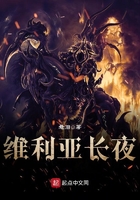When Aunt Ri heard that Farrar had fled the country, she pushed up her spectacles and looked reflectively at her informant. It was young Merrill. "Fled ther country, hez he?" she said. "Wall, he kin flee ez many countries ez he likes, an' 't won't dew him no good. I know yeow folks hyar don't seem ter think killin' an Injun's enny murder, but I say 'tis; an' yeow'll all git it brung home ter yer afore yer die: ef 'tain't brung one way, 't'll be anuther; yeow jest mind what I say, 'n' don't yeow furgit it. Naow this miser'ble murderer, this Farrar, thet's lighted out er hyar, he's nothin' more'n a skunk, but he's got the Lawd arter him, naow. It's jest's well he's gawn; I never did b'leeve in hangin'. I never could. It's jest tew men dead 'stead o' one. I don't want to see no man hung, no marter what he's done, 'n' I don't want to see no man shot down, nuther, no marter what he's done; 'n' this hyar Feeleepy, he's thet highstrung, he'd ha' shot thet Farrar, any minnit, quicker'n lightnin', ef he'd ketched him; so it's better all raound he's lit aout. But I tell yeow, naow, he hain't made much by goin'! Thet Injun he murdered 'll foller him night 'n' day, till he dies, 'n' long arter; he'll wish he wuz dead afore he doos die, I allow he will, naow. He'll be jest like a man I knowed back in Tennessee. I wa'n't but a mite then, but I never forgot it. 'Tis a great country fur gourds, East Tennessee is, whar I wuz raised; 'n' thar wuz two houses, 'n' a fence between 'em, 'n' these gourds a runnin' all over the fence; 'n' one o' ther childun picked one o' them gourds, an' they fit abaout it; 'n' then the women took it up,-- ther childun's mothers, yer know, -- 'n' they got fightin' abaout it; 'n' then 't the last the men took it up, 'n' they fit; 'n' Rowell he got his butcher-knife, 'n' he ground it up, 'n' he picked a querril with Claiborne, 'n' he cut him inter pieces. They hed him up for 't, 'n' somehow they clared him. I don't see how they ever did, but they put 't off, 'n' put 't off, 'n' 't last they got him free; 'n' he lived on thar a spell, but he couldn't stan' it; 'peared like he never hed no peace; 'n' he came over ter our 'us, 'n' sed he, 'Jake,' -- they allers called daddy 'Jake,' or 'Uncle Jake,' -- 'Jake,' sed he, 'I can't stan' it, livin' hyar.' 'Why,' sez daddy, 'the law o' the country's clar'd ye.' 'Yes,' sez he, 'but the law o' God hain't; 'n' I've got Claiborne allers with me. Thar ain't any path so narrer, but he's a walkin' in it, by my side, all day; 'n' come night, I sleep with him ter one side, 'n' my wife 't other; 'n' I can't stan' it.' Them's ther very words I heered him say, 'n' I wuzn't ennythin' but a mite, but I didn't furgit it. Wall, sir, he went West, way aout hyar to Californy, 'n' he couldn't stay thar nuther, 'n' he came back hum agin; 'n' I wuz bigger then, a gal grown, 'n' daddy sez to him,-- I heern him,-- 'Wal,' sez he, 'did Claiborne foller yer?' 'Yes,' sez he, 'he follered me. I'll never git shet o' him in this world. He's allers clost to me everywhar.' Yer see, 'twas jest his conscience er whippin' him. Thet's all 't wuz. 'T least, thet's all I think 't wuz; though thar wuz those thet said 't wuz Claiborne's ghost. 'N' thet'll be the way 't 'll be with this miser'ble Farrar. He'll live ter wish he'd let hisself be hanged er shot, er erry which way, ter git out er his misery."
Young Merrill listened with unwonted gravity to Aunt Ri's earnest words. They reached a depth in his nature which had been long untouched; a stratum, so to speak, which lay far beneath the surface. The character of the Western frontiersman is often a singular accumulation of such strata, -- the training and beliefs of his earliest days overlain by successions of unrelated and violent experiences, like geological deposits. Underneath the exterior crust of the most hardened and ruffianly nature often remains -- its forms not yet quite fossilized -- a realm full of the devout customs, doctrines, religious influences, which the boy knew, and the man remembers, By sudden upheaval, in some great catastrophe or struggle in his mature life, these all come again into the light.
Assembly Catechi** definitions, which he learned in his childhood, and has not thought of since, ring in his ears, and he is thrown into all manner of confusions and inconsistencies of feeling and speech by this clashing of the old and new man within him. It was much in this way that Aunt Ri's words smote upon young Merrill. He was not many years removed from the sound of a preaching of the straitest New England Calvinism. The wild frontier life had drawn him in and under, as in a whirlpool; but he was New Englander yet at heart.
"That's so, Aunt Ri!" he exclaimed. "That's so! I don't s'pose a man that's committed murder 'll ever have any peace in this world, nor in the next nuther, without he repents; but ye see this horse-stealin' business is different. 'Tain't murder to kill a hoss-thief, any way you can fix it; everybody admits that. A feller that's caught horse-stealin' had ought to be shot; and he will be, too, I tell you, in this country!"
A look of impatient despair spread over Aunt Ri's face. "I hain't no patience left with yer," she said, "er talkin' abaout stealin' hosses ez ef hosses wuz more'n human bein's! But lettin' thet all go, this Injun, he wuz crazy. Yer all knowed it. Thet Farrar knowed it.
D'yer think ef he'd ben stealin' the hoss, he'd er left his own hoss in the corral, same ez, yer might say, leavin' his kyerd to say 't wuz he done it; 'n' the hoss er tied in plain sight 'n front uv his house fur ennybody ter see?"
"Left his own horse, so he did!" retorted Merrill. "A poor, miserable, knock-kneed old pony, that wa'n't worth twenty dollars;
'n' Jim's horse was worth two hundred, 'n' cheap at that."















